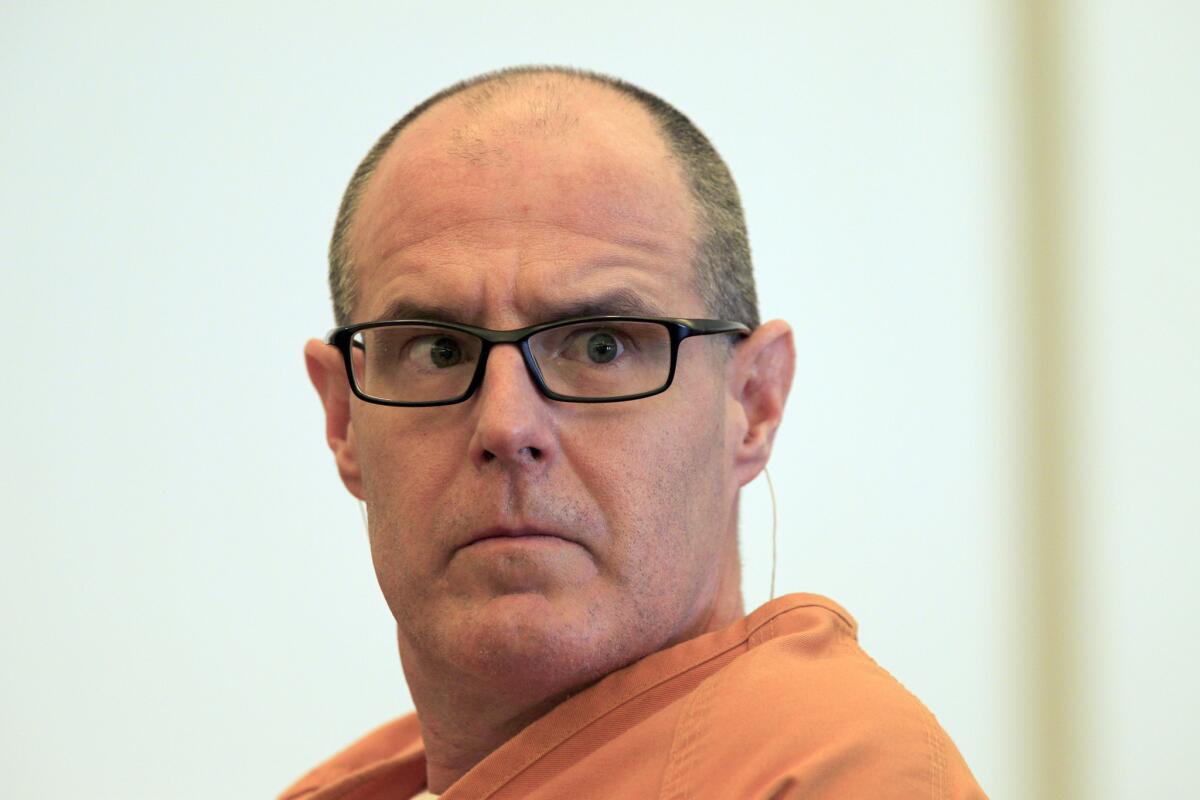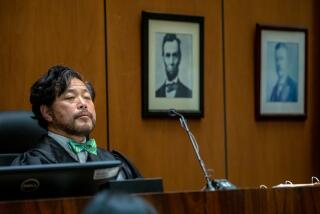D.A. won’t use jailhouse recordings in Seal Beach mass-murder case

Orange County prosecutors have ended their quest to use recorded conversations between the alleged Seal Beach mass killer and a jailhouse informant, which they had hoped could put the man on death row.
Senior Deputy Dist. Atty. Howard Gundy told the court Tuesday he would concede a defense motion which argued that tapes of alleged gunman Scott Dekraai and informant Fernando Perez were obtained in violation of Dekraai’s 6th amendment rights.
The recordings spurred a wide-ranging defense investigation into the use of jailhouse informants in Orange County.
The investigation has resulted in an ongoing hearing over allegations that, in Dekraai and other cases, informants were unconstitutionally deployed to gather information on defendants and information routinely withheld from defense attorneys.
During the hearing, Dekraai’s prosecutor, Assistant Dist. Atty. Dan Wagner, conceded that his office has failed to disclose information, including evidence gathered by informants, to defense attorneys in multiple cases—a revelation that could potentially lead to new trials for some convicted criminals.
Prosecutors have blamed any errors on their own failures to understand case law regarding disclosure and informants, lack of transparency from federal agents and large caseloads.
Defense attorneys say prosecutors show a pattern of misconduct so egregious that, in addition to throwing out the recordings, the court should dismiss the death penalty and recuse the district attorney’s office from the Seal Beach mass killing case.
The court has spent several weeks vetting the misconduct allegations with testimony from prosecutors, investigators and jailhouse informants. On Tuesday, Deputy Dist. Atty. Erik Petersen, who handled cases in which evidence has not been turned over, took the stand.
After making his concession, Gundy argued that the scope of the hearing should now be focused on the actions of prosecutors in the Dekraai case rather exploring the role of informants in other cases.
Superior Court Judge Thomas Goethals indicated he was inclined to continue hearing from witnesses.
“We’re going to follow the evidence in this case wherever it leads,” he said.
To protect the constitutional rights of suspects, courts have ruled that informants working as government agents cannot deliberately elicit statements from defendants after charges have been filed.
In Dekraai’s case, a bug was installed in his cell after Perez came forward to say the alleged gunman had been talking to him. In parts of the 132 hours of recordings, prosecutors said, Dekraai can be heard talking about the shootings.
Prosecutors initially declined to hand over information about Perez’s informant background.
After the judge ordered them to do so, defense attorneys learned that Perez was a prolific jailhouse snitch who had gathered information on multiple inmates, including two other death penalty defendants.
During the hearing, Perez insisted he did not try to get information from fellow inmates. He also acknowledged lying multiple times, including under oath, in his own case.
A ruling on the remaining motions is expected before the start of Dekraai’s trial, which is set to begin June 9.
Twitter: @PalomaEsquivel
More to Read
Sign up for Essential California
The most important California stories and recommendations in your inbox every morning.
You may occasionally receive promotional content from the Los Angeles Times.











